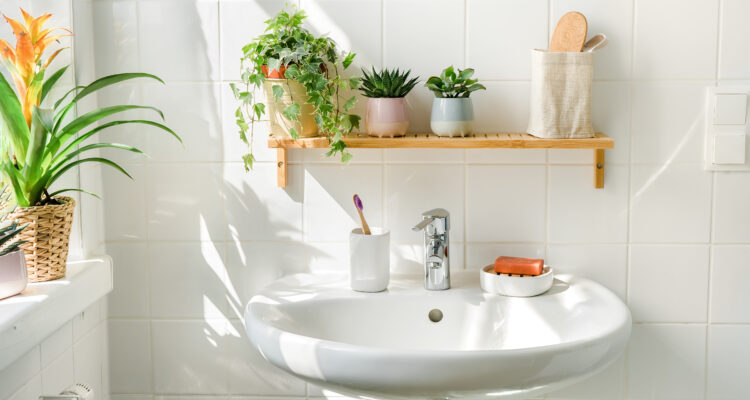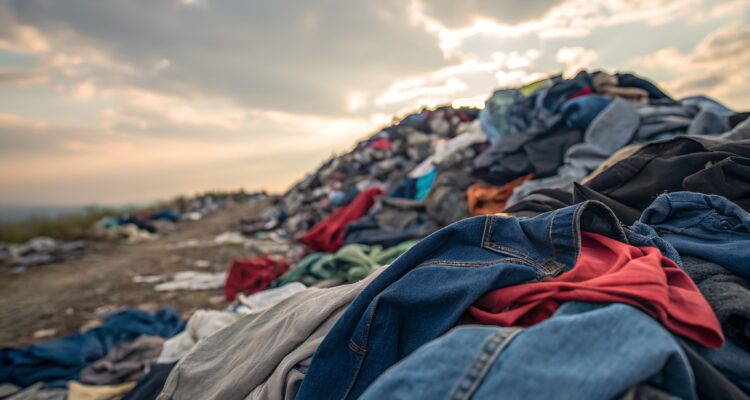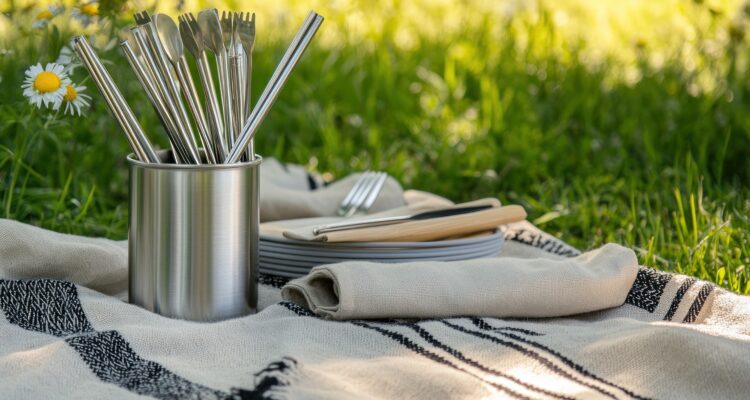People have never been more conscious about how their lifestyle could impact the environment. That’s why more of us are trying to swap to sustainable alternatives. Whether that’s changing the products we use or shortening the time we spend in the shower. Sometimes it can feel hopeless, but there’s plenty we can do! We’ve put together 6 easy tips you can follow to be more sustainable in the bathroom:
1. Change your toothpaste.
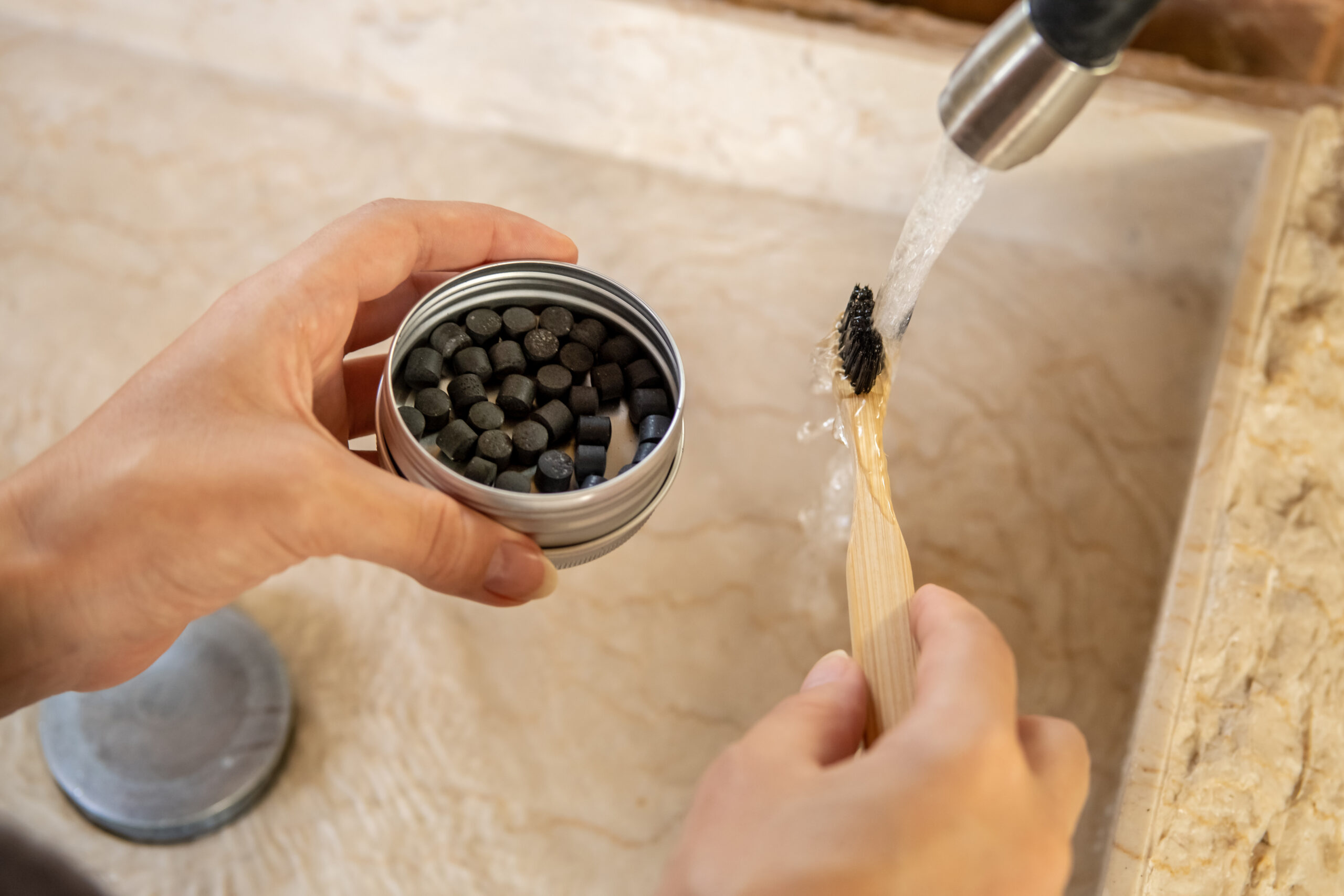
According to the British Dental journal, the UK uses 300 million tubes of toothpaste every year – enough to circle the world twice if laid end-to-end! It can take 500 years for a toothpaste tube to fully biodegrade in landfill. This is because they contain different types of plastics, and sometimes a metal layer inside the tube, which makes recycling even harder.
A great alternative is toothpaste tablets. They’re becoming more widely available in supermarkets and come in sustainable packaging like paper envelopes or metal tins. But make sure it’s a reputable brand, approved by dentists, usually with added fluoride. And, along the same lines, steer clear of disposable plastic toothbrushes – there are more sustainable alternatives like bamboo [1].
2. Return to bar soap.
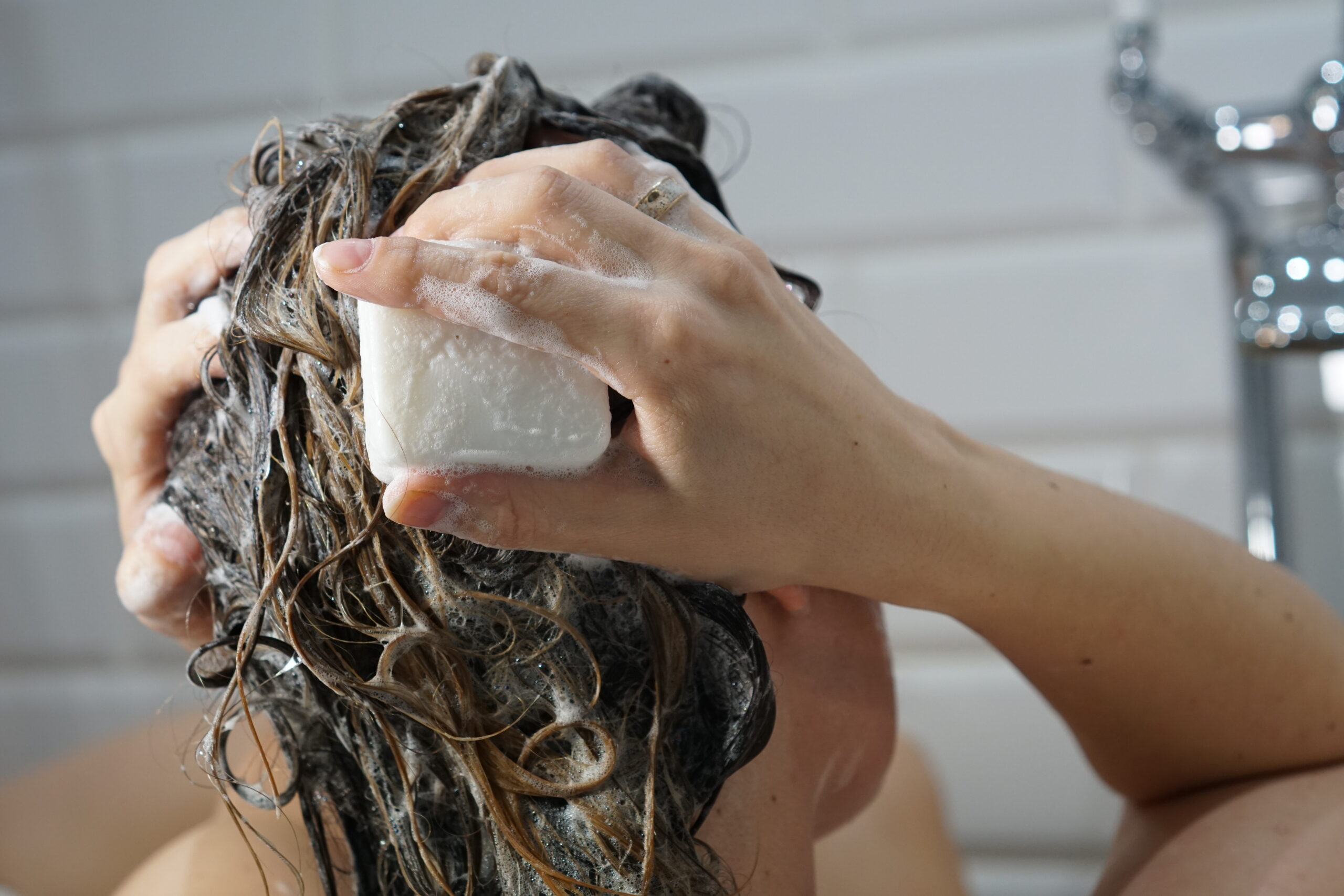
As well as ditching the toothpaste tubes, let’s ditch the plastic bottles of shower gel too and go back to good old-fashioned soap. Most people associate bar soap with that squeaky, dry feeling. The new soaps, though, are a far cry from the bars of the past. They look good, smell great and many come with added extras such as goats milk, cocoa butter or shea butter to nourish dry skin. Others contain natural exfoliants like sandstone, poppy seeds, coffee grounds or oats. To avoid wasting even the smallest sliver, you can use your small old soaps in a mesh soap pouch to lather up and exfoliate too. And it’s not just body wash that can be swapped for a bar soap these days. Face wash, shampoo and conditioner can also come in bar form.
3. Recycle plastic.
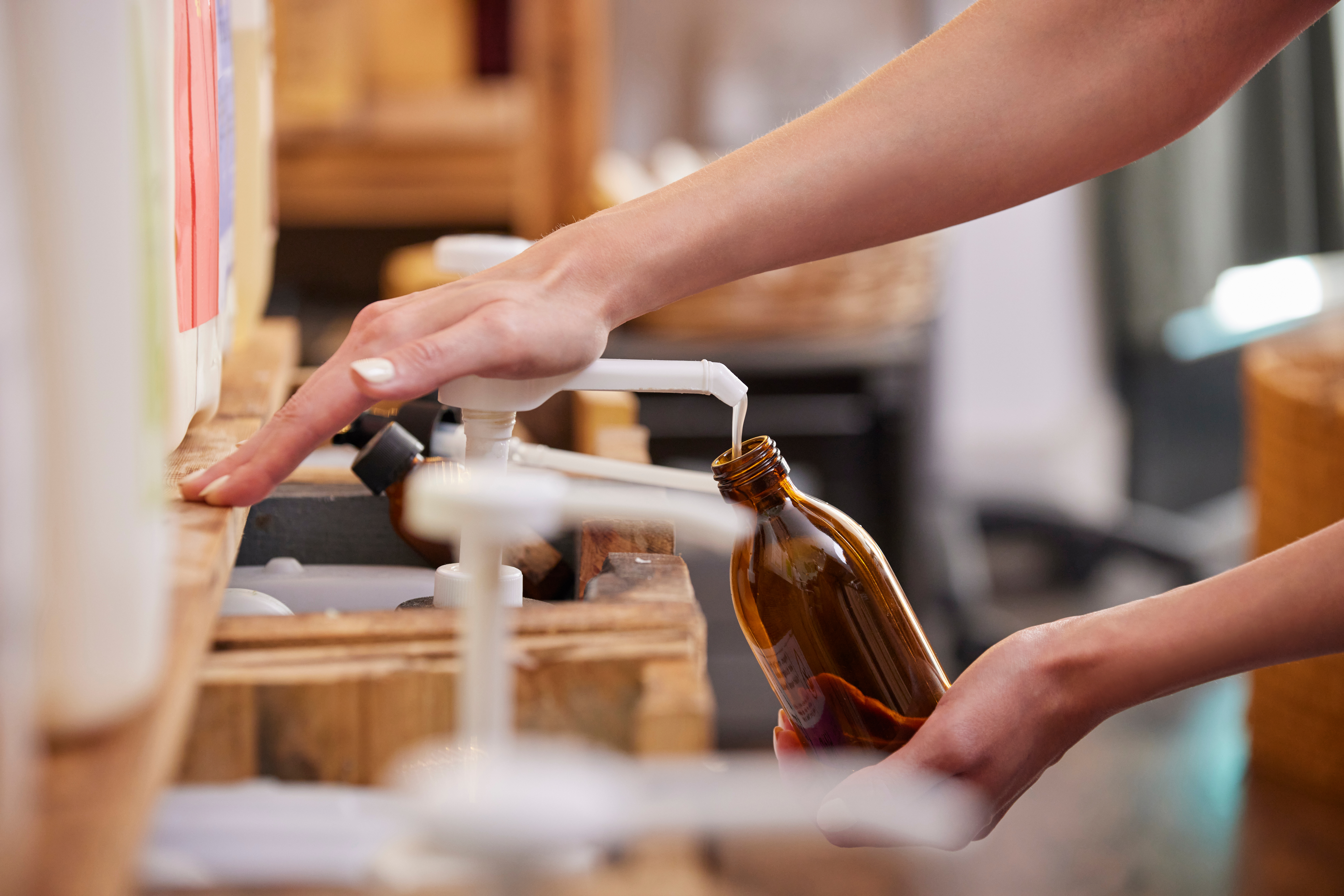
If you can’t find plastic-free versions of all your bathroom essentials, ensure you choose ones that are packaged in recycled or recyclable plastic – and remember not to add it to land-fill when you’re done. Some companies are now offering a refill service too. Get yourself a permanent liquid soap holder and refill it at a store near you. You can find a list here of shops that offer refills of all sorts of household items in your area.
4. Switch to degradable wipes.
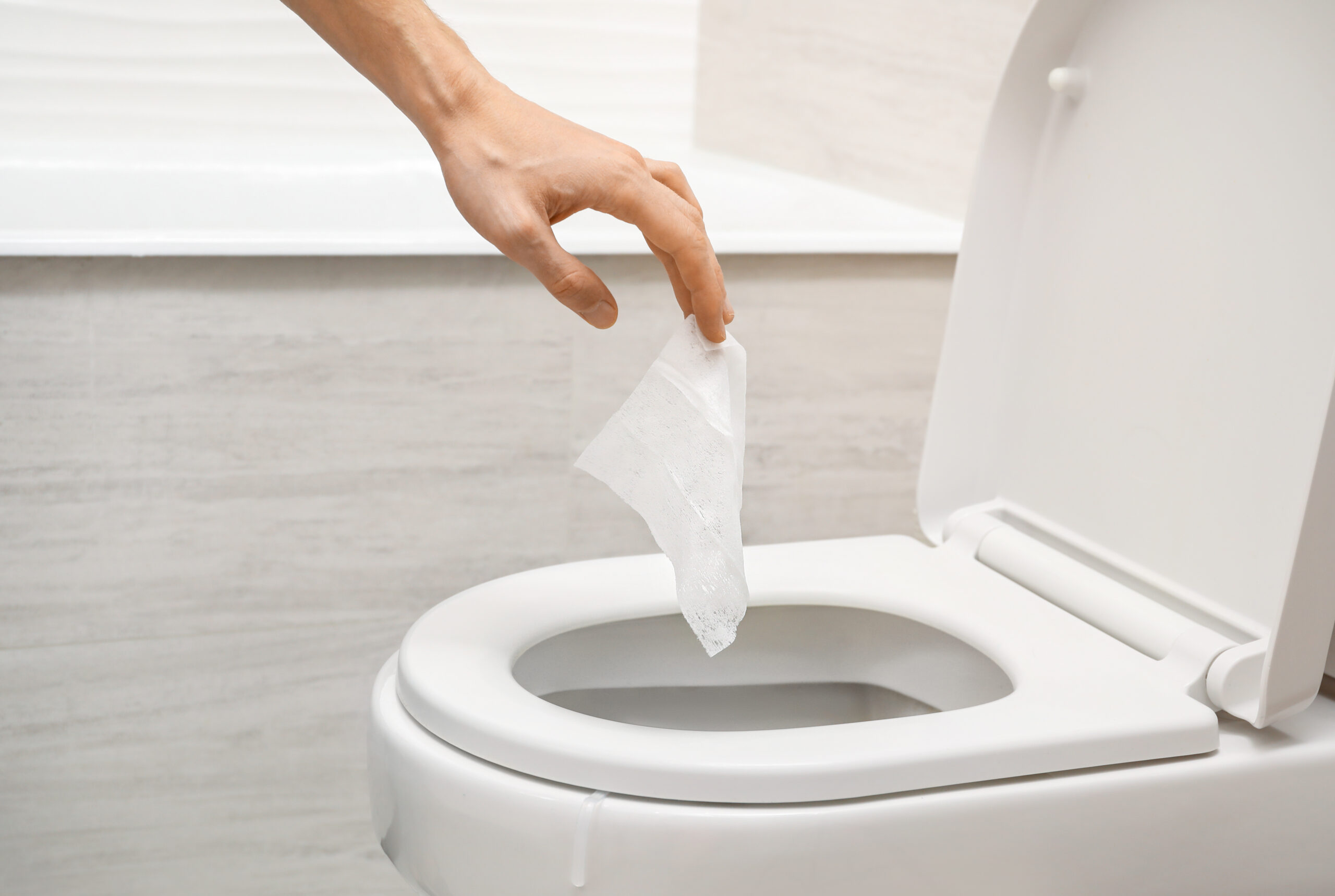
Eleven billion wet wipes are thrown out each year in the UK – often flushed away, causing 93% of blockages in the UK’s sewer system. 90% of wet wipes contain plastics that turn into microplastics when broken down, contaminating water and food supplies as well as damaging ecosystems[2].
When looking for cleaning wipes or wet toilet wipes, check they are biodegradable and flushable for a more environmentally friendly alternative. This should be clearly marked on the packet.
5. Shorten your shower, ban the bath.
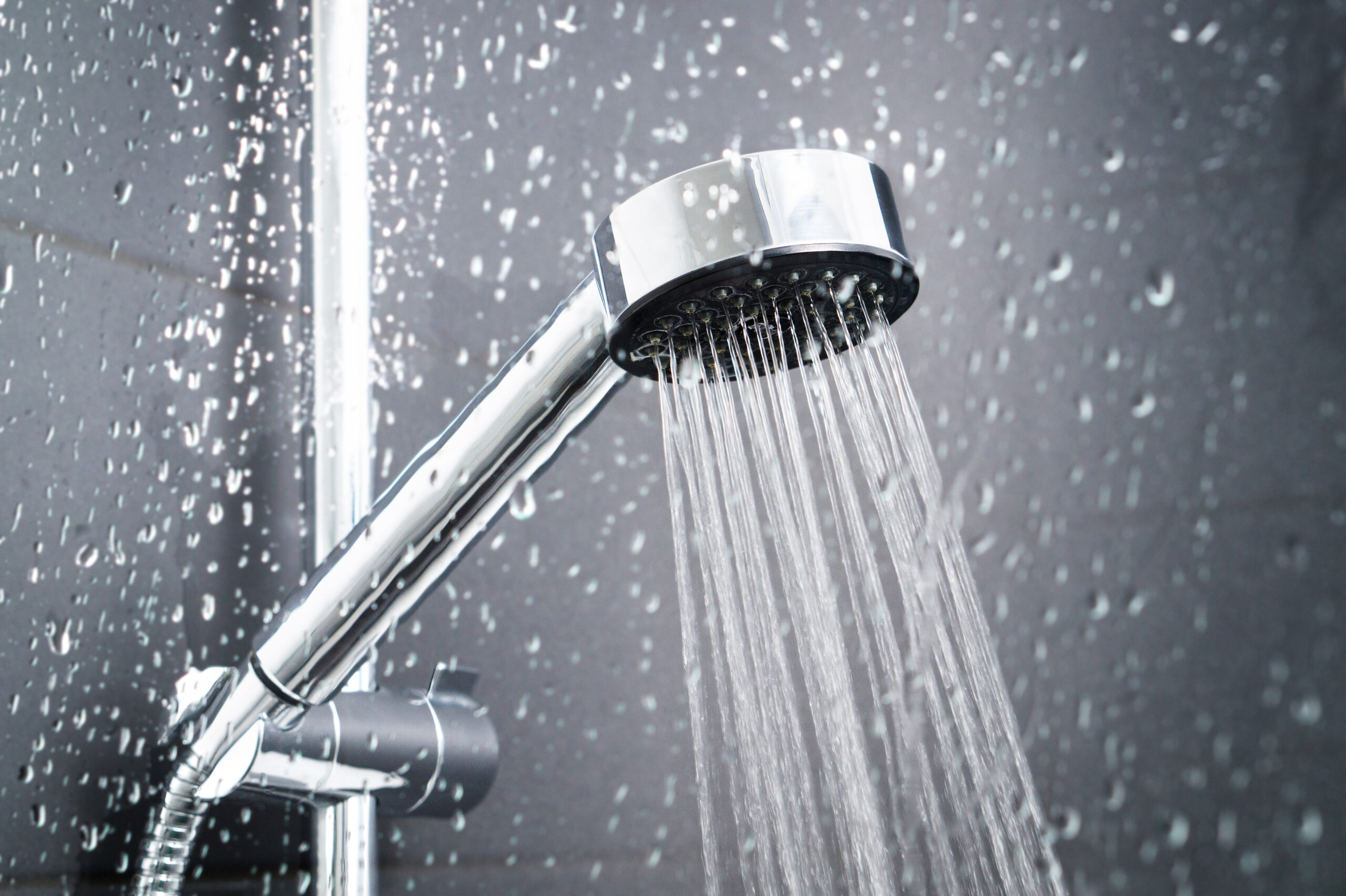
A normal bath filled a third of the way up uses around 75 litres of water. In comparison, a power shower can use around eight litres per minute, meaning a 10-minute shower could waste more than a bath! If you want to be an eco-hero, try and keep your showers to around 4 minutes. If you can bear it, a cold shower is reported to have health benefits and will save even more energy!
Plus you can save around 3 litres of water every time you flush the toilet by using a cheap, easy to install, water-saving device in the cistern.
6. Use considerate cleaning products.
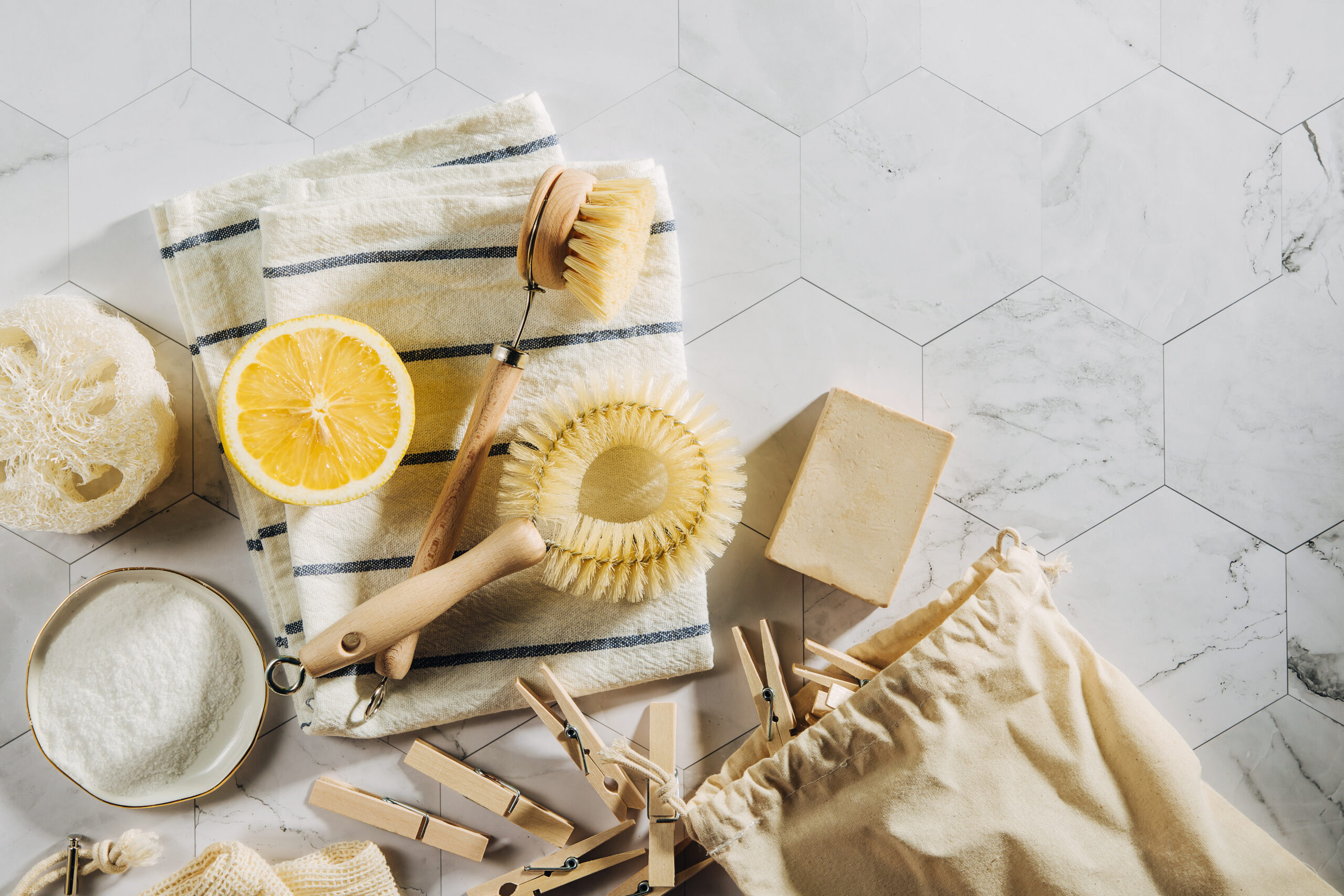
Cleaning products are usually packaged in thick plastic due to their contents, such as chlorine and other potentially toxic chemicals. These can cause fumes and irritation in the home, add to the chemical waste in our water supply and affect wildlife too.
But less toxic alternatives are available, and often work just as well without a cost to the planet!
You can even make your own all natural cleaning products, that won’t break the bank or hurt the environment. Just refill old cleaning spray bottles with your new home-made alternatives. If you want to give it a go, check out these easy recipes.
Let’s change those bathroom habits that cause excessive water use and plastic waste. Implementing these six small and simple steps will help you move towards more sustainable living.
Looking for more ways to be more sustainable? Here at Vavista we plant a tree for every car insurance policy we sell.
Why not get a quote today?
